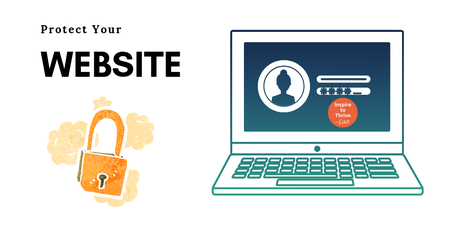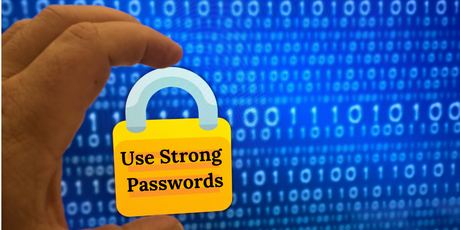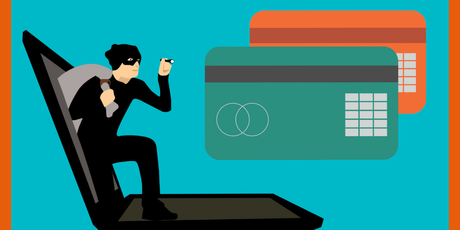Don't Be A Victim With Your Website Today!
Learn how to protect your eCommerce website. Both hacking and fraud are real problems for eCommerce business owners today. There are regular reports in the media of businesses being affected by online fraud.
So should you have a website up and running for selling purposes, you do need to take protective measures to protect your online business from harm.

There are a number of preemptive measures available to you, and these include the following.
Both hacking and fraud are real problems for eCommerce business owners today. #eCommercefraud Click To Tweet#1: Use a Secure eCommerce Platform
There are many eCommerce marketplace builders available, but you need to do your research. It's in your best interest to use a platform that both uses secure encryption methods, and who regularly monitors your site for you, in lieu of any threats.
Shopify and Magento are commonly used and are both highly trusted platforms. Do take time exploring the range of options available to you.
#2: Use Strong Passwords to Protect Your eCommerce Website
The stronger your password is, the harder it is for any hacker to get access to your website. Therefore, from your login details onwards, create passwords that are difficult to break.
Use a range of special characters, numeric numbers, and both small and capital letters, or use a password manager which will create and remember your passwords for you. Such a tool is useful, as the more complicated your passwords are, the more likely you are to forget them.

I love using LastPass to store passwords and have used it for many years. 🙂 I remember Adrienne Smith wrote about this and she left the blogging world several years now.
#3: Use an Identity Verification Service
Identity theft and account takeovers are on the rise today. So when a person is doing business with you, you need to be sure that they are who they say they are.
By using an identity verification service , you can verify both new and existing customers to protect yourself from fraud. You might want to set up a system alert too. If a person makes multiple transactions from the same IP address but uses different credit cards each time, you might want to inform your eCommerce platform administrator.
Don't ship any products unless you are sure you are dealing with a genuine customer and not a fraudster! I used to have this happen with a retail site I managed. And then the money would not be there in the account after it was shipped. 🙁
#4: Use Firewalls and Antivirus Software
This should be a no-brainer for any computer user, but if you haven't installed a firewall and the appropriate antivirus software onto your computer yet, make it a priority.
These methods will protect a website from the latest hacking methods used by cybercriminals. Then, an alert will be sent out when an attacker tries to breach the network.
These are some of the best software programmes available today, incorporating both antivirus tools and firewall security for added protection.
#5: Update Your Software
If you have chosen to manually update your antivirus and firewall software, remember to update it regularly. Otherwise, you won't be protected from the latest threats posed by hackers. This will leave your computer and your website vulnerable to attack.

For better security, change your settings to automatic updates. This will avoid disruption to your working day, time these updates to take place during less busy periods. Anything you can do to automate your "to do list" is a huge time saver.
For better security, change your settings to automatic updates. #websitetips Click To TweetFinally
Should you become the victim of fraud and/or hacking, your business will take a further hit when your reputation and financial situation suffers. Don't forget if you are using your website to sell anything to include the https format.
Therefore, take the preemptive measures we have suggested today, and continue to educate both yourself and your employees on the latest methods to protect your eCommerce business from harm. Your business and your customers depend upon it.
Have you experienced fraud on your website recently? I'd love to know more in the comments on how you are protecting your website!


